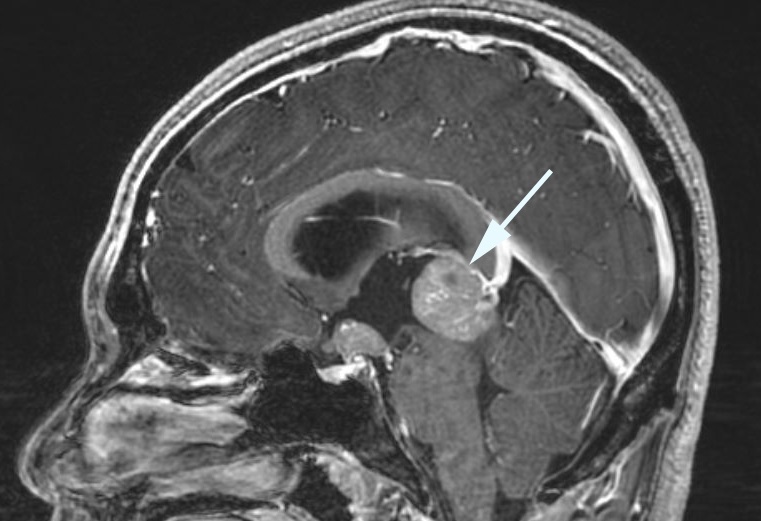( of )
Correct: 0
Incorrect: 0
This 15 year old boy reported that looking up causes pain around his eyes. Look at his eye movements.
The responsible lesion is
Incorrect
Incorrect
Incorrect

Why does this bizarre eye movement disturbance occur? As upward gaze fails, a spill-over activation within the pretectum (dorsal midbrain) affects all extraocular muscles and pulls the eyes backward into the orbit. Because the medial rectus muscles are the strongest extraocular muscles, the eyes also converge. Attempted upgaze evokes discomfort around the eyes.
A lesion in the adjacent thalamus (stroke, demyelination, tumor) can also cause this phenomenon, as can obstructive hydrocephalus from aqueductal stenosis or ventricular shunt malfunction.
This oscillation is not truly a nystagmus because it is not initiated by a conjugate slow phase drift. Think of it as a form of clonus, or synchronous contraction of many muscle groups. It is never an isolated phenomenon. Impaired upgaze will always be present. Also look for other elements of pretectal (dorsal midbrain) dysfunction, including reduced pupil constriction to light (often with preservation of constriction to a near target), hypertropia, esotropia, and exotropia.
The cause here was a pineal germinoma, for which treatment is often highly effective, especially if instituted promptly. Unfortunately, regression of the tumor may not lead to full resolution of these manifestations of pretectal (dorsal midbrain) dysfunction.